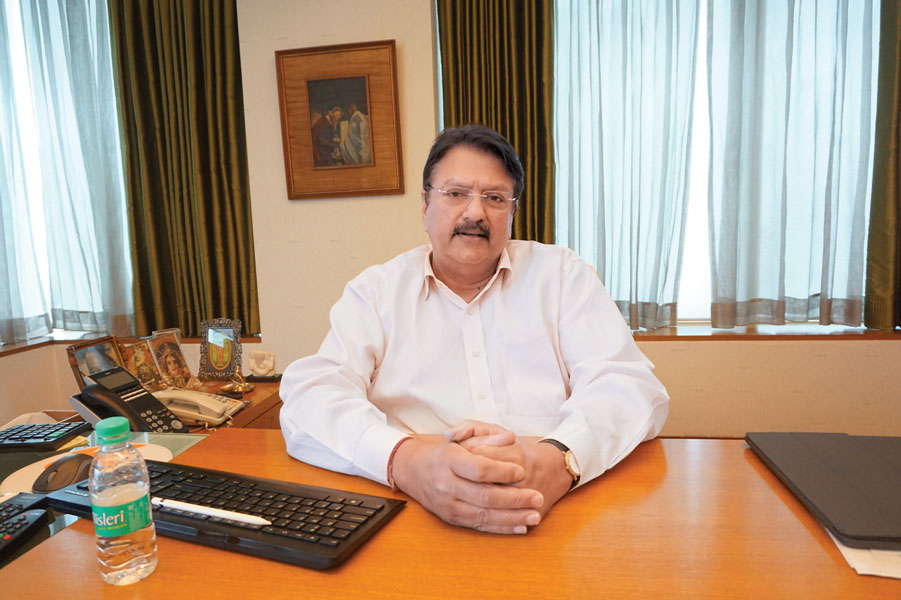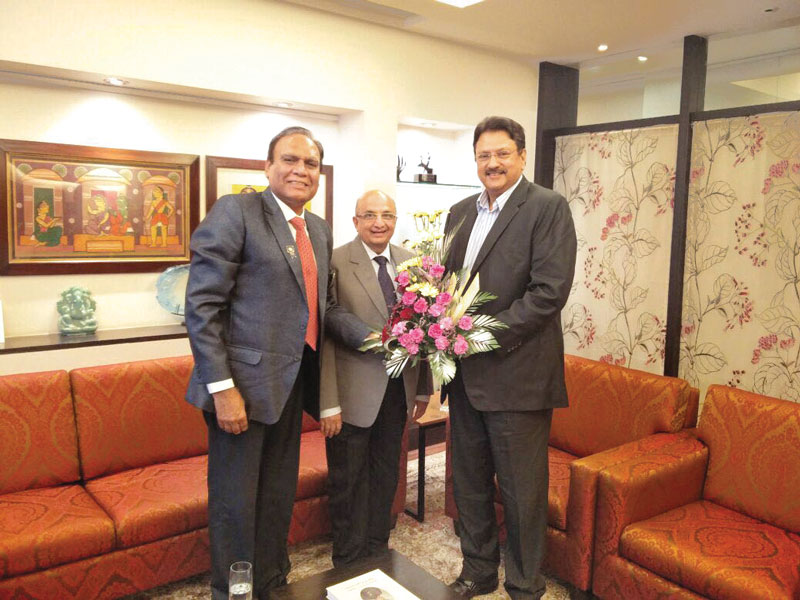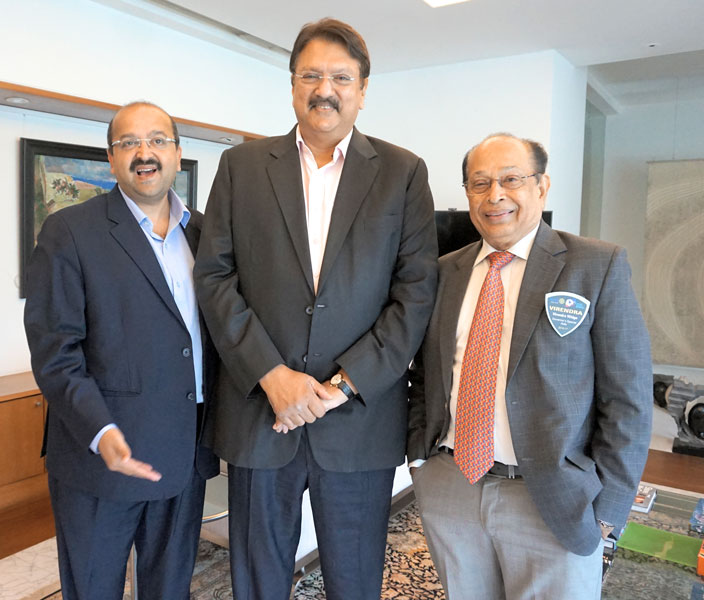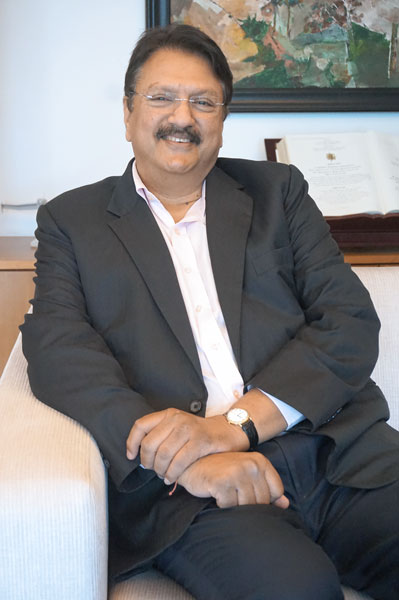The Piramal family’s philanthropy dates back over 80 years when the grandfather of Ajay Piramal, Chairman of the Piramal group, started the first school for Dalits in his village Bagar in Jhunjhunu district of Rajasthan. Later, he took the bold step of setting up a school for girls in rural Rajasthan, breaking all taboos. This philanthropic seed sown in the early 1900s took firm root and the Piramal family continued with several charitable activities. In 2007–08, it decided to set up the Piramal Foundation, which now takes care of all the philanthropic activities of the Piramal group of companies in a much more structured fashion, having on board 3,500 full time staff. The Piramal Foundation works in the three major areas of education, health care and clean drinking water. In education it works only in government schools and the philosophy of its work is that while the government has both the funding and programmes in place, efficiency and quality need to be brought in through a fresh and different approach and innovative ideas. As leadership can make all the difference, it focuses on improving the quality of headmasters and teachers. With an annual budget of Rs 60 crore, the Foundation works in 1,600 government schools, and wants to expand this number to 10,000 by 2020. It has its own trained teams on the ground executing projects in 15 States across the country.

In an interview to Rotary News, Ajay Piramal explains why he decided to become an Arch Klumph Society member, and why he thinks a partnership with Rotary is desirable. Excerpts:
You have your own Piramal Foundation which is working in several social sectors and you are a leading philanthropist from India, so why the decision to become an Arch Klumph Society member?
One is because Rotary is doing good work and its impact is out there for everyone to see, whether it is in the polio outreach programme and eradicating polio from India, or many other initiatives they have been taking consistently over the last several decades. So first of all it is the credibility of the organisation, and then there are the people who have been involved in it.
Rotary is doing good work and its impact is there for everyone to see, whether it is in the polio outreach programme or many other initiatives they’ve taken consistently over the last several decades.
I find that both the Rotarians and the staff of Rotary are committed; Rotarians are not professionals, they are volunteers and are doing all this because they want to serve society. They really believe that service is above self. So that’s a good reason.
So you consider Rotary a trustworthy partner?
Yes, I do. Their governance is good; they have so many levels of governance, and you can easily see its impact on the ground wherever you go. That is why I trust Rotary.
In the Piramal Foundation, what areas are you most passionate about? And why?
There are lots and lots of areas in India that you can work in, but the main areas that we work in are education, youth, leadership and health care. In education we mainly work in government schools and our core philosophy is developing good leadership. So we invest a lot of our time and effort with the headmasters as we feel it is very important to have a good leader engaging with the staff, students, and community. The objective of course is improved learning in government schools. In health, we work in the entire space of health care.

Health is of course connected to your pharma industry…
Not really. There is much more than that we do; we work in the entire area of health care. And then we provide clean drinking water. These are the three big areas. But we support many other initiatives.
Rotary is also involved in literacy and you are the Chairman of Pratham. What kind of work do you think Pratham is doing?
Pratham is really doing large scale interventions in the primary education space… as we say, our mission is to see that every child is in school and is learning well. We started almost 20 years ago and now, as we all know, in India virtually 99 per cent of children go to school.
Our next emphasis is to see how we can improve the level and quality of learning of these children. That is what Pratham does; it is a very large scale organisaton, actually it is the largest NGO in the education space in India.
I am very optimistic of India’s future because India is one of the shining beacons of growth. Our strengths are spiritual heritage and depth of diversity.
Rotary’s dream is to make India totally literate by 2017, or 2018 or however long it takes. How soon do you think India can realise this dream?
I think in literacy we are fast getting there; nearly 99 per cent of children are enrolled in schools. For the older people, it will take some time. But the next generation is going to be fully literate.
This streak of philanthropy and the habit of giving back to society… is it a family trait? Was it inculcated in you at a young age?
It has been there right from the beginning. My grandfather was not that well off, but even at that time, he started giving. In his village called Bagar in the Jhunjhunu district of Rajasthan, he started a school for the Harijans and backward classes. This was the early 1900s and as you can imagine, it was not easy in that era to start a school for backward classes… it was quite a big thing. The first person who entered his school was a Harijan. That school is still running and most of the students are from the backward classes because the fees is very nominal. There are more than 1,000 students studying in this school today.
And that was not all. He also started a girls’ school around the same time… the early 1900s, and to do that in a Rajasthan village… you have to appreciate what it meant. He also started for the community what at that time was a sort of a medical outlet in the same village.
So while growing up, charity and giving were values that were inculcated in you… to give back to society?
Yes, it was only natural.
Indian corporates and charity… it is beginning to happen, but if we look at the United States, at Microsoft’s Bill Gates, ace investor Warren Buffet and more recently Facebook’s Mark Zuckerberg, they find it so easy to give away their fortunes in charity. But we don’t see similar largesse coming from Indian billionaires. Why do you think that is so?
Actually, if you look at overall data, India is not that bad! India is still doing rather well on the philanthropy front, and there are enough studies to show that. But probably what is happening is that a lot of people in India don’t really talk about it. I think it’s there, and the habit of giving is only increasing. I am very optimistic about it.
Harvard is the best school to build leaders of calibre. And by being on the Dean’s committee, you get to meet people who are really outstanding and successful, and with leading edge thinking.
Now of course the corporates anyway give two per cent for CSR.
Yes, I was coming to that. The government had to make that compulsory.
But that’s alright in an emerging society. And anyway, many of us do what we can and without any compulsions! A classic case… we all talk about Bill Gates, but look at the Tatas. They’ve been doing it for a long time and it is only increasing now.
Coming to the Harvard Business School where you serve on the Board of Dean’s Advisors, what has that experience been like?
It has been a very interesting experience. First of all, I think Harvard is the best school to build leaders of calibre. And being on that committee at Harvard, you get to meet and interact with people who are really outstanding and successful. Whether it is the advisors or the faculty, there is leading edge thinking and that is a major advantage and a great experience.

Any special takeaways from that experience?
Well, life teaches you many things. Harvard also does that and keeps you abreast of the latest thinking.
What do you think about India’s future?
I am very optimistic of India’s future because if you take all the countries of the world today, where is the growth coming from? Actually, India is one of the shining beacons of growth. Look at the strengths that India has. One of our major strengths, which we normally underestimate, is the spiritual heritage we have, which no other country in the world has. This is the only country where you see such a depth of diversity. There are 150 million Muslims who live in India in harmony and peace with the other communities. Please tell me which other country in the world has this?
So we have to celebrate our diversity and that is because of the spiritual foundation that this country has. And apart from this, India is a market that is growing. Which other country is growing like us today? And it is a democracy, there is freedom; so yes, these are the strengths that India has. I am very optimistic about India’s future because of all these factors.
You are a big follower of the Bhagwad Gita, and you yourself have a strong spiritual streak in you. Where does that come from?
That is the blessing of the Lord. I always say, and of course believe, that if you have the resources and you don’t share those resources with those who don’t have them, as the Lord says, you are a thief. And that is my philosophy. I have resources and I am fortunate to be born in the family that I was born in, and I had all the comforts, so it is my duty to share what I can with others.
How did you get associated with Rotary?
Both my brothers were Rotarians, actually Presidents of Rotary clubs, several years ago. My eldest brother Ashok Piramal, who is no more, was the President of the Rotary Club of Bombay North. My other brother is Dilip Piramal, who was the President of the Rotary Club of Midtown and now he has joined Rotary Club of Bombay, or is joining it. So that association is there. Then my brother-in-law Nirav Shah, (who is present at the interview) is a Rotarian too. I was in Rotary earlier, and my wife Jyoti Piramal was a Rotarian too. I am now an honorary member of Rotary Club of Bombay.
But why did you leave?
It was mainly due to preoccupation with my business duties, and in those days you didn’t have the liberal attendance policies that Rotary has today. And, I am already an honorary member so I don’t have to pay the fees (chuckles).
But you have paid a much steeper and a very generous fee of $250,000! Are you planning or open to any other future partnerships with Rotary?
I’m sure there will be some opportunities in the future.
Pictures by Rasheeda Bhagat
Piramal Foundation partners with Harvard, NY University

The Piramal Foundation has interesting partnerships with both the Harvard Business School and the New York University. In Harvard “we are part of a global coalition of seven organisations working on what is called 21st century skills,” says Foundation head Paresh Parasnis. He says Indian schools’ focus is largely on literacy and numeracy. But increasingly it is believed that if any child has to succeed in the 21st century, “what is required is beyond academic knowledge. You will need abilities to collaborate, empathise, resilience, perseverance, etc, which are intrinsic abilities that are never taught in government schools. We are working with Harvard on how to integrate some of these skills in the curriculum of government schools.”
On the work being done with the New York University, Parasnis says that in Indian schools, particularly government schools, assessment is mainly done around language and math skills. “Students are tested only for these two. New York University is developing tests to figure out how the emotional development of a child happens, to internalise some of the 21st century skills. So how do you test a student on the non-cognitive skills that we talk about, such as empathy, collaboration, and so on. And they’ve done a lot of work in this area in the US context of course. And we are seeing how we can adapt that to Indian conditions and use it for government schools that we work in.”






